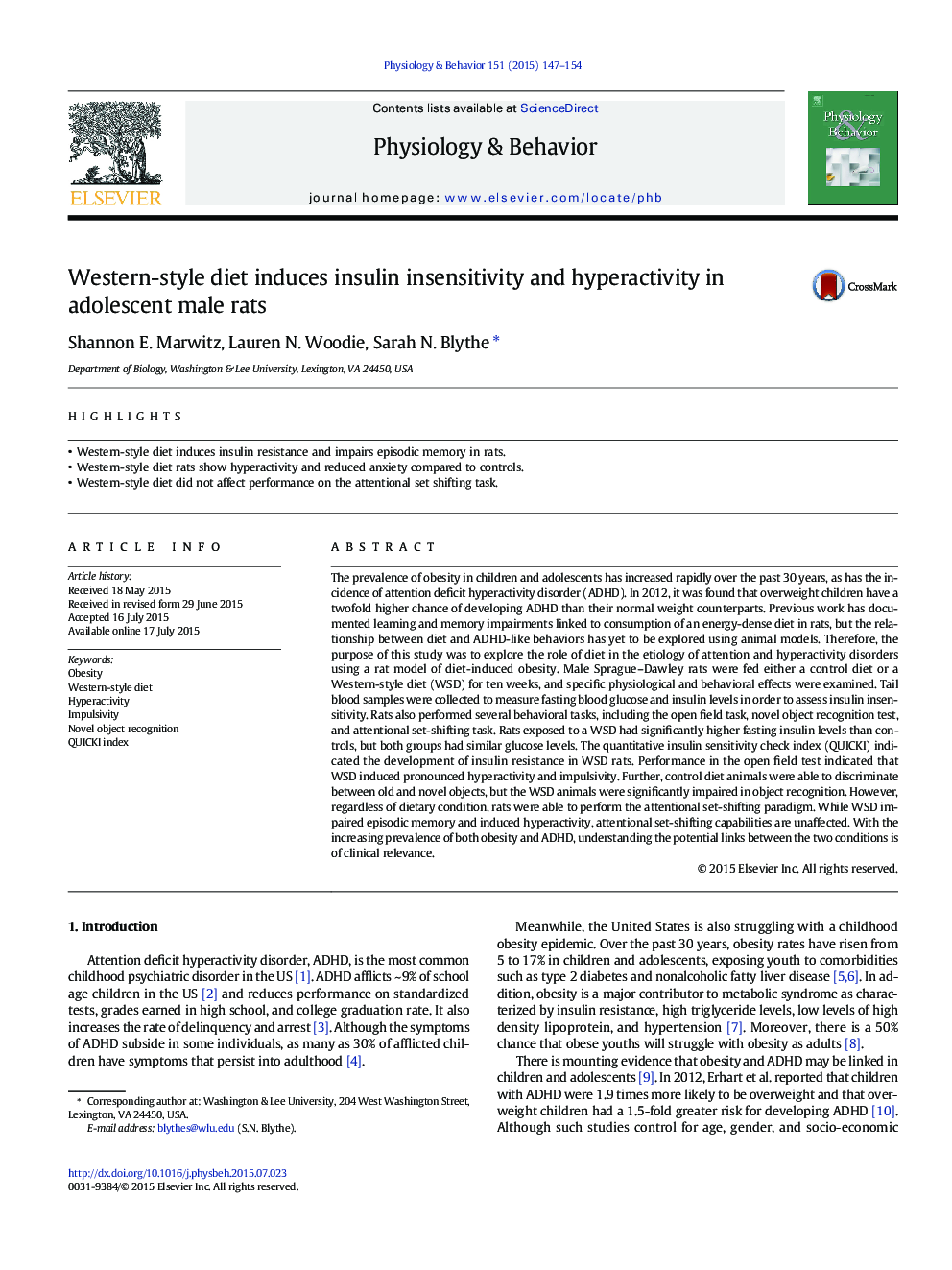| کد مقاله | کد نشریه | سال انتشار | مقاله انگلیسی | نسخه تمام متن |
|---|---|---|---|---|
| 5923246 | 1571166 | 2015 | 8 صفحه PDF | دانلود رایگان |
عنوان انگلیسی مقاله ISI
Western-style diet induces insulin insensitivity and hyperactivity in adolescent male rats
ترجمه فارسی عنوان
رژیم غذایی غربی سبب افزایش حساسیت و انسولین در موش های صحرایی نر و ماده می شود
دانلود مقاله + سفارش ترجمه
دانلود مقاله ISI انگلیسی
رایگان برای ایرانیان
کلمات کلیدی
موضوعات مرتبط
علوم زیستی و بیوفناوری
بیوشیمی، ژنتیک و زیست شناسی مولکولی
فیزیولوژی
چکیده انگلیسی
The prevalence of obesity in children and adolescents has increased rapidly over the past 30Â years, as has the incidence of attention deficit hyperactivity disorder (ADHD). In 2012, it was found that overweight children have a twofold higher chance of developing ADHD than their normal weight counterparts. Previous work has documented learning and memory impairments linked to consumption of an energy-dense diet in rats, but the relationship between diet and ADHD-like behaviors has yet to be explored using animal models. Therefore, the purpose of this study was to explore the role of diet in the etiology of attention and hyperactivity disorders using a rat model of diet-induced obesity. Male Sprague-Dawley rats were fed either a control diet or a Western-style diet (WSD) for ten weeks, and specific physiological and behavioral effects were examined. Tail blood samples were collected to measure fasting blood glucose and insulin levels in order to assess insulin insensitivity. Rats also performed several behavioral tasks, including the open field task, novel object recognition test, and attentional set-shifting task. Rats exposed to a WSD had significantly higher fasting insulin levels than controls, but both groups had similar glucose levels. The quantitative insulin sensitivity check index (QUICKI) indicated the development of insulin resistance in WSD rats. Performance in the open field test indicated that WSD induced pronounced hyperactivity and impulsivity. Further, control diet animals were able to discriminate between old and novel objects, but the WSD animals were significantly impaired in object recognition. However, regardless of dietary condition, rats were able to perform the attentional set-shifting paradigm. While WSD impaired episodic memory and induced hyperactivity, attentional set-shifting capabilities are unaffected. With the increasing prevalence of both obesity and ADHD, understanding the potential links between the two conditions is of clinical relevance.
ناشر
Database: Elsevier - ScienceDirect (ساینس دایرکت)
Journal: Physiology & Behavior - Volume 151, 1 November 2015, Pages 147-154
Journal: Physiology & Behavior - Volume 151, 1 November 2015, Pages 147-154
نویسندگان
Shannon E. Marwitz, Lauren N. Woodie, Sarah N. Blythe,
